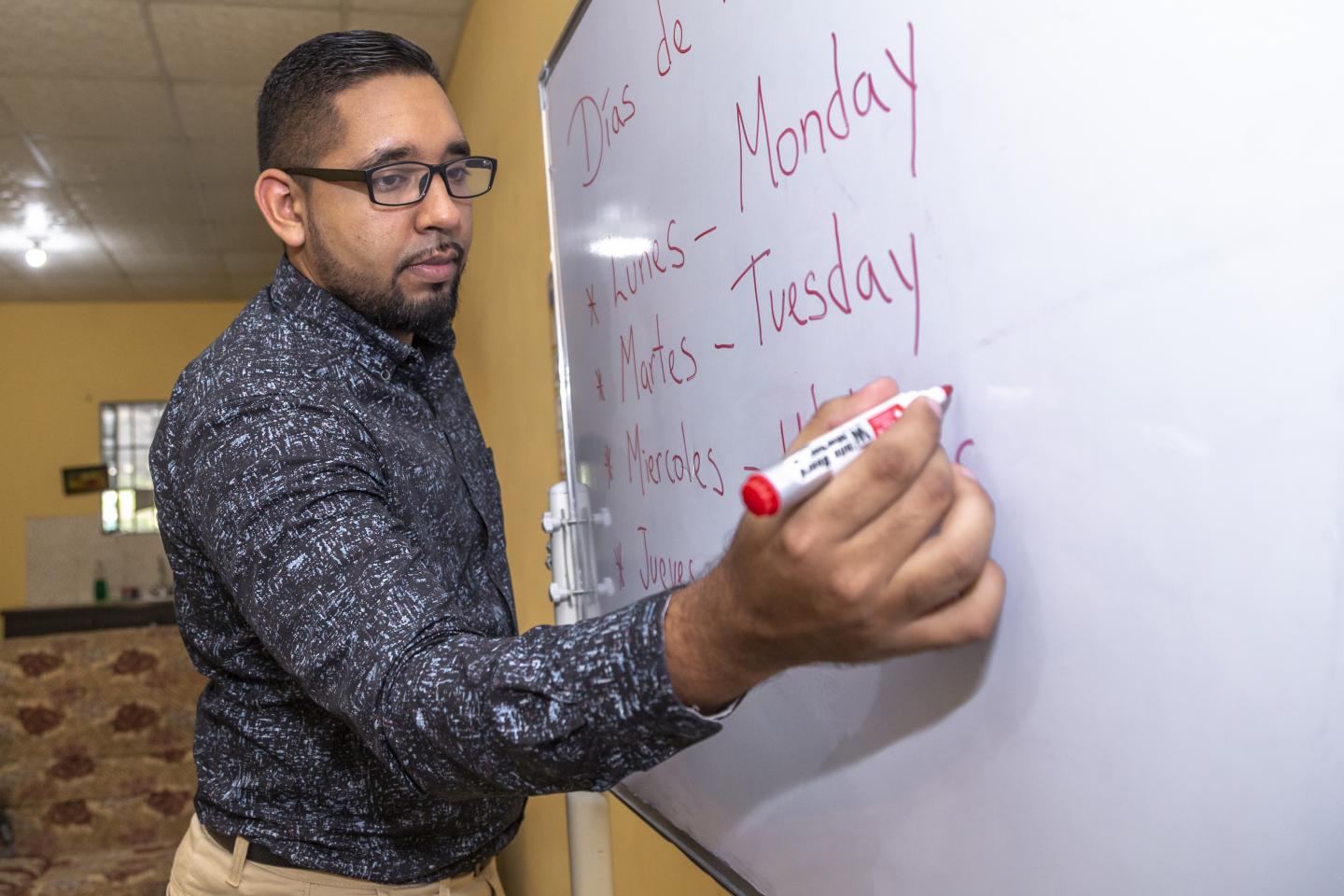Luis Hernández, un maestro y amigo venezolano que une lengua y cultura entre trinitarios y migrantes

Inclusive Cities ProjectVer original
Luis José Hernández Alemán arrived in Trinidad four years ago, in July 2018, from a small town called Pariaguan, just south of Anzoátegui State in Venezuela.
“This new beginning was marked by a series of cultural, language, and social barriers that, rather than becoming insurmountable obstacles, were the motivation to improve myself day by day,” recalled Luis, 27.
In Venezuela, Luis, who studied petroleum engineering, worked at state oil company, PDVSA, as a technician and supervisor of well testing operations in the field. As life in his country got progressively difficult, he and his family made the decision to leave to search for a better life. They chose Trinidad and Tobago, a Caribbean nation just 15 kilometres off the Caribbean coast of Venezuela.
When he arrived in Trinidad, he worked a variety of odd jobs to earn an income — bartender, waiter, gardener, and many more — all far different from working in the oilfields. But, he said, it was this period of transition and uncertainty that forged his character.
Luis quickly realised the best way to make himself more desirable to employers in Trinidad was to learn English.
“This is where I saw my resilience. During this period, I dedicated my free time to studying the English language, which would later become the most important tool.”
He was able to quickly learn the language of his new host community. And with an added talent for teaching, he was soon much admired by his neighbours, both locals and other refugees and migrants who had also come from Venezuela.
Luis currently lives in Chaguanas, a place where he feels comfortable and that has resources to allow him to work and grow.
“Chaguanas has been an important city for me, for my projects. Here I have local and foreign friends who seek my support in translating and teaching both languages, English and Spanish, to make their day-to-day life easier.”
In July 2019, just over a year after he arrived in Trinidad, Luis received an opportunity that would change his life — to be an instructor for the Equal Place programme.
“I was given the opportunity to be a facilitator for Equal Place.” Equal Place is a joint UNHCR/UNICEF programme aimed at helping refugee and migrant children in Trinidad and Tobago keep up with their education. The project is supported by local NGO partners, including the Living Water Community and hundreds of children of various nationalities who are refugees and migrants in Trinidad and Tobago have benefitted.
Equal Place opened the doors for him to work with other NGOs that also help migrants and refugees, to strengthen the intercultural relationship between refugee and migrant children and local children.
“I have also had the opportunity to participate in social inclusion projects carried out by the University of the West Indies, where I was an English as a Second Language (ESL) teacher to help over 30 Venezuelans learn to communicate in basic English.” And in 2021, he was part of a Living Water Community project to promote linguistic and social connections among locals through the Spanish language.
“I was able to (teach) my native language and show off our Latin American culture. Thorough this great project, more than 150 Trinidadians, belonging to different fields, such as military, police, doctors, nurses and office staff, among others, were able to benefit.”
And through these experiences, he was inspired to create his own language learning school, The Polyglot Learning Centre.
“It is a project focused on breaking down language and social barriers, facilitating the inclusion of Latinos into the Trinidadian society and creating a mentality of acceptance based on language within the Trinidadian community towards Spanish-speaking people. This project has had incredible results, and being able to be part of it has changed the lives and minds of our students,” Luis said proudly.

